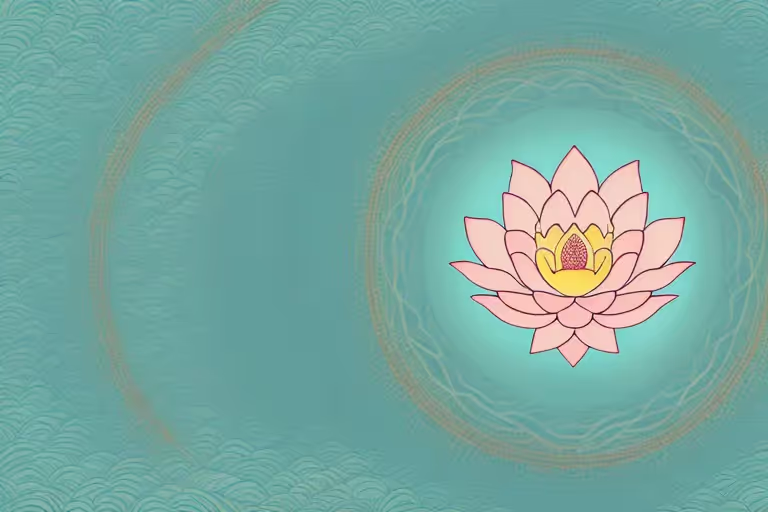Are you feeling stressed, overwhelmed, or lost in life? Do you find yourself constantly worrying about the future or regretting past mistakes? If so, it's time to embrace the power of rumination and reflection. Contrary to popular belief, these practices are not just negative, but can actually provide a multitude of benefits for your mental health and personal growth. By taking the time to pause and reflect on your experiences, thoughts, and emotions, you can gain valuable insights, reduce stress and anxiety, and become a happier, more fulfilled person. In this article, we'll explore the science behind rumination, the positive effects it can have on your life, and practical techniques for effective reflection.
Understanding Rumination and Reflection
Defining Rumination
Rumination is a complex psychological process that involves compulsively thinking about past experiences, often with a negative or critical perspective. It can be triggered by a traumatic event, a breakup, or a failure, and can be difficult to control. Rumination can lead to feelings of sadness, anxiety, and hopelessness, and can interfere with daily life.
However, rumination is not always a bad thing. When done effectively, it can help you process your feelings, gain closure, and learn from your mistakes. This type of rumination is called reflective rumination, and it involves examining your thoughts and emotions in a constructive way, without getting stuck in negative patterns of thinking.
Reflective rumination can be a powerful tool for personal growth and self-awareness. It can help you identify patterns in your thinking and behavior, gain insight into your emotions, and make positive changes in your life.
The Difference Between Rumination and Reflection
While rumination and reflection may seem similar on the surface, there are some key differences between the two. Reflection involves a more balanced and intentional approach to thinking about your experiences. It's about examining your thoughts and emotions objectively and without judgment, and using that information to make positive changes in your life.
Rumination, on the other hand, is often characterized by repetitive, negative thoughts that are difficult to control. It can lead to a sense of being stuck in the past, and can interfere with daily life. While rumination can be helpful in some cases, it's important to be aware of the difference between reflective and unproductive rumination.
The Science Behind Rumination
Research has shown that rumination can have negative effects on mental health. People who ruminate excessively are more likely to experience symptoms of anxiety and depression. However, this doesn't mean that all rumination is bad. In fact, some studies have found that people who engage in reflective rumination are more resilient and better able to cope with stress.
One reason for this is that reflective rumination can help you gain insight into your emotions and develop a greater sense of self-awareness. This can lead to a greater sense of control over your thoughts and emotions, and can help you develop more effective coping strategies.
Overall, understanding the difference between rumination and reflection is an important step in developing greater self-awareness and improving your mental health. By learning to engage in reflective rumination, you can gain insight into your emotions, develop greater resilience, and make positive changes in your life.
The Positive Effects of Rumination on Mental Health
Reducing Stress and Anxiety
By reflecting on your thoughts and emotions, you can gain a greater understanding of what triggers your stress and anxiety. Instead of letting these emotions control you, you can learn to manage them in a healthy way. This might involve using relaxation techniques, practicing self-care, or seeking support from people you trust.
One way to manage stress and anxiety is through mindfulness meditation. This practice involves focusing your attention on the present moment and accepting your thoughts and emotions without judgment. Studies have shown that mindfulness meditation can reduce symptoms of anxiety and depression, as well as improve overall well-being.
Another way to reduce stress and anxiety is through physical activity. Exercise releases endorphins, which are natural mood-boosters. Regular exercise can also improve sleep, reduce tension, and increase self-esteem.
Enhancing Emotional Intelligence
Emotional intelligence is the ability to recognize, understand, and manage your own emotions, as well as the emotions of others. By regularly reflecting on your experiences and emotions, you can develop greater self-awareness and empathy. This can improve your relationships with others, as well as your own sense of fulfillment.
One way to enhance emotional intelligence is through journaling. Writing down your thoughts and feelings can help you process them and gain insight into your emotional patterns. You can also practice active listening, which involves paying attention to others' emotions and responding in a supportive way.
Another way to enhance emotional intelligence is through therapy. A therapist can help you explore your emotions and develop coping strategies for managing them. They can also provide a safe space for you to express yourself and receive validation and support.
Boosting Creativity and Problem-Solving Skills
Rumination can also help you become more creative and innovative. By thinking deeply about a problem or challenge, you can come up with new solutions and insights. This can enhance your professional performance, as well as your personal growth and development.
One way to boost creativity is through exposure to new experiences and ideas. Traveling, trying new hobbies, and reading diverse literature can all expand your perspective and inspire new ways of thinking.
Another way to boost problem-solving skills is through collaboration. Working with others can bring fresh perspectives and ideas to the table. Brainstorming sessions, group projects, and mentorship can all help you develop your problem-solving abilities.
The Role of Rumination in Personal Growth
Personal growth is a lifelong journey that requires introspection and self-reflection. One of the ways to achieve personal growth is through rumination, which involves deep thinking and contemplation about oneself and one's experiences. Rumination can be a powerful tool for personal growth, and in this article, we will explore how it can help you develop self-awareness, learn from past experiences, and set and achieve personal goals.
Developing Self-Awareness
Self-awareness is the foundation of personal growth. Without understanding who you are, it is difficult to make intentional choices about your life and career. Rumination can help you become more self-aware by reflecting on your strengths and weaknesses, values, and motivations.
For example, if you are considering a career change, you can use rumination to reflect on your skills, interests, and values. By understanding what is important to you, you can make a more informed decision about your career path.
Learning from Past Experiences
Everyone makes mistakes, but it is how we learn from them that matters. Instead of obsessing over the past or dwelling on your mistakes, use rumination as an opportunity to learn and grow. By analyzing your past experiences, you can identify patterns, recognize your triggers, and make positive changes in your life.
For instance, if you had a difficult relationship with a family member or friend, you can use rumination to reflect on what went wrong. By identifying the patterns in your behavior and communication, you can make changes to improve your relationships in the future.
Setting and Achieving Personal Goals
Personal growth often involves setting and achieving personal goals. Rumination can help you set and achieve these goals by reflecting on your priorities and aspirations. By developing a clear sense of direction and purpose, you can make a plan and take action to achieve your goals.
For example, if your goal is to run a marathon, you can use rumination to reflect on why this goal is important to you. By understanding your motivations, you can develop a training plan that is tailored to your needs and abilities.
In conclusion, rumination can be a powerful tool for personal growth. By developing self-awareness, learning from past experiences, and setting and achieving personal goals, you can become the best version of yourself. So, take some time to reflect and ruminate, and see how it can help you on your journey of personal growth.
Techniques for Effective Rumination
Journaling for Self-Reflection
One effective technique for rumination is journaling. By putting your thoughts and feelings down on paper, you can gain distance from them and view them more objectively. This can help you identify patterns, gain insights, and come up with new solutions to problems.
Mindfulness and Meditation Practices
Mindfulness and meditation practices can also help you engage in effective reflection. By practicing mindfulness, you can become more aware of your thoughts and emotions in the moment, allowing you to respond to them in a healthy and intentional way. Meditation can help you calm your mind and gain clarity on your priorities and goals.
Engaging in Thoughtful Conversations
Finally, engaging in thoughtful conversations with people you trust can help you gain new perspectives and insights. By sharing your thoughts and emotions with others, you can receive feedback and support that can help you grow and develop.
Conclusion
Rumination and reflection are not just negative or pointless practices. When done effectively, they can provide a multitude of benefits for your mental health and personal growth. By taking the time to pause and reflect on your experiences, thoughts, and emotions, you can gain valuable insights and become a happier, more fulfilled person. So, the next time you're feeling stressed or lost, don't be afraid to embrace the power of rumination and reflection.
Aura is Your All In One App for Meditation, Mindfulness Wellbeing
Find peace every day with one app for your whole well-being. There is no one-size-fits-all solution to mental well-being. Aura is the first all-in-one wellness app that learns how to best help you. Discover an endless library of expert-created tracks for your well-being, all taught by the world’s best coaches, therapists, and storytellers. With Aura's personalized recommendations, you can find peace every morning, day and night.



.webp)






.avif)

%20(1).avif)


.avif)
.avif)
.webp)


.avif)


















































































































.avif)

















.svg)









